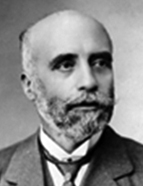

In 1891 Leite published O Dia [The Day] in the newspaper, consisting of articles that criticised the Lições práticas de linguagem portugueza [Practical Portuguese Language Lessons] of Cândido de Figueiredo. In the same year, under the pseudonym Caturra Júnior, Cândido published the booklet Tosquia de um grammatico dedicada aos filologos mirandezes [The Shearing of a grammarian dedicated to the Mirandese philologists], to which Leite replied with O Gralho depenado. Replica às Caturrices philologicas do sr. Candido de Figueiredo [The featherless rook. A reply to the philological obstinacy of Mr Candido de Figueiredo]. The issue came to an end in 1892 in O golpe de misericordia. Execução litteraria de Zé Filólogo Leite de Vasconcellos, accusado de varios delitos contra a grammatica, o bom senso e a salubridade publica [The coup de grâce. Literary Execution of Joe Philologist Leite de Vasconcellos, accused of several crimes against grammar, good judgement and public salubrity]. Notwithstanding the reciprocal accusations, this is an important testimony of the opposition between the pre-scientific philological discourse of Figueiredo – more concerned with the concept of error and language vices – and modern linguistics, documented by dialectology and capable of accounting for the diversity and variation of the Portuguese language. Considering the oeuvre of Leite de Vasconcelos, the texts at the centre of this controversy represent a didactic discourse that is very close to scientific dissemination.
However, Leite was also criticised for encumbering some of his scientific works with a digressive style and excessive detail. In 1912, historian and philologist João Ribeiro (1860-1934) published a review of Lições de Filologia, where he criticised its superficiality and accumulation of facts without offering any new conclusions, establishing a parallel with the method used by Leite in ethnographic studies, listing facts and postponing a critical synthesis of the collected materials. (Rev. da Acad. Brasileira, [Journal of the Brazilian Academy] 1912).
Leite de Vasconcelos did not leave evidence of his political preferences in his work, nor can his public intervention be compared with that of his contemporaries such as Adolfo Coelho, who participated in the Conferências do Casino and who devoted most of his life to pedagogical and illiteracy studies, or Teófilo Braga, who had been a Republican activist since 1878.
